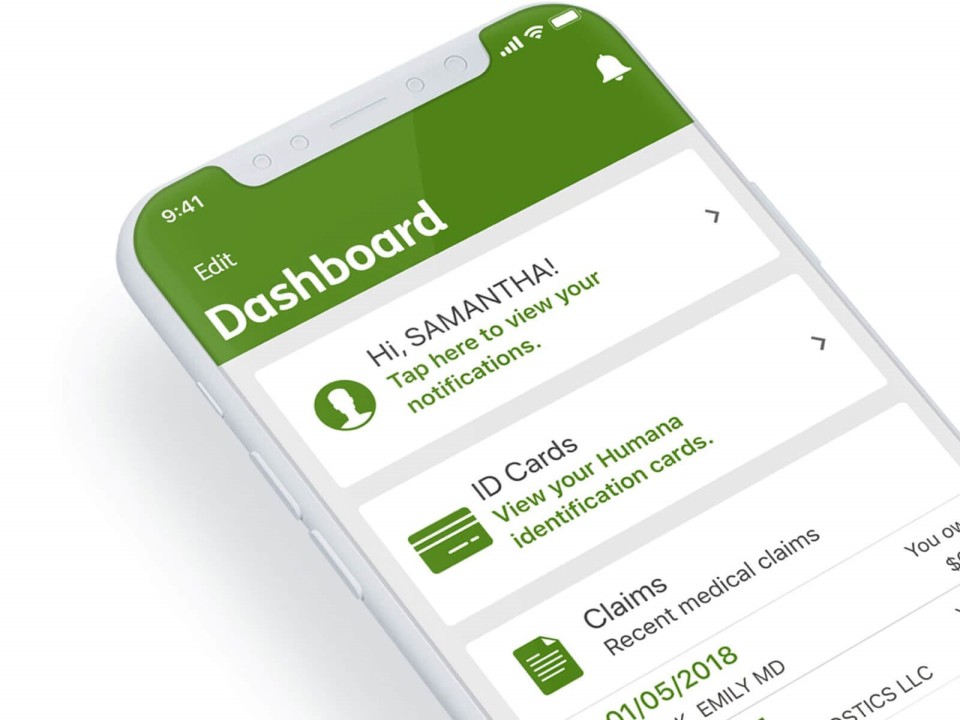Each of us has experienced firsthand the complexity of our health care system, and we know how confusing and complicated it can be just to manage our own health records. We get it. We empathize with you. It needs to change.
I’ve heard from many of you that managing your health records should be as easy as managing your 401(k) account on your phone. Across the world, there is a growing movement to give consumers control over their data. Health data should be no different. Patients need to control their health data, and they need easy access to it.
There’s good news on the horizon. The health care industry is working to give patients, physicians, clinicians and health plans the ability to access and securely share clinical patient information in near real-time. This is the concept known as interoperability, which connects data across the health care system and allows patients to better manage their health and make informed care decisions.
While 86 percent of office-based physicians are using electronic medical records, many health systems cannot share these with each other, resulting in vast, isolated silos of critical patient information. However, if these systems could begin to talk to one another, we could improve care coordination and generate “more than $30 billion in annual health care savings.”
Interoperability gives health care consumers what they rightly deserve—ownership of their health information. Today, physicians, patients and health plans have a hard time sharing patient information. You experience this when you visit the doctor’s office and fill out personal-information forms – again – or urge them to send your information to another physician.
You might not realize this, but some companies that collect patient data are using proprietary systems and charging exorbitant fees to connect to other systems. These outdated business models profit from the sale of patient medical data at the expense of consumers having access to their own health data.
Despite these challenges, I’m optimistic about our industry’s ability to come together and embrace interoperability so we can bring much-needed simplicity to the system, which will improve care and lower costs.
We have a bold call to action to achieve interoperability. The Centers for Medicare and Medicaid Services (CMS) has issued an important call to action that will empower consumers to control, access and share their personal health data while also making it easier for physicians to share data with other physicians treating the same patients.
Dubbed the Interoperability and Patient Access proposed rule, the goal is to “break down barriers to interoperability and health information exchange,” leveraging the progress of the Blue Button initiative.
CMS intends to require health plans like Humana to implement Fast Healthcare Interoperability (FHIR)-based application program interfaces (APIs) to enable patients to share their lab results, health claims, prescriptions and other clinical information with their physicians via the click of a button on a mobile device. These APIs make it easier for patients, clinicians and health plans to access and share critical health information.
Medicare Advantage enrollees can certainly benefit from interoperability. Today, nearly 75 percent of people over the age of 65 are living with multiple chronic conditions, and these conditions account for the majority of what we spend on health care. Interoperability could improve these people’s health.
Physicians treating patients with multiple chronic conditions would have a near real-time, holistic view of all the clinical actions performed by his or her peers. From reducing redundant testing to stopping conflicting prescriptions, these physicians could leverage this holistic patient data to make more-informed decisions.
The CMS proposal puts seniors in control of their own data, enabling them to decide who gets their information and empowering them to better manage their health. Health plans like Humana that administer Medicare Advantage also benefit from interoperability because it augments the holistic approach to care by using data analytics to garner and share insights from the patient’s data. That helps physicians and clinicians improve people’s health and well-being.
The health care industry has a great opportunity to band together to answer CMS’ call to help deliver a new patient experience. The promise of interoperability is inspiring because, if done right, it will be the foundation for transforming the system.
Physicians should have the best information available, and no one should have to spend hours tracking their health records. I empathize with anyone who has had a difficult experience.
The time for change is now. Let’s heed the call.

